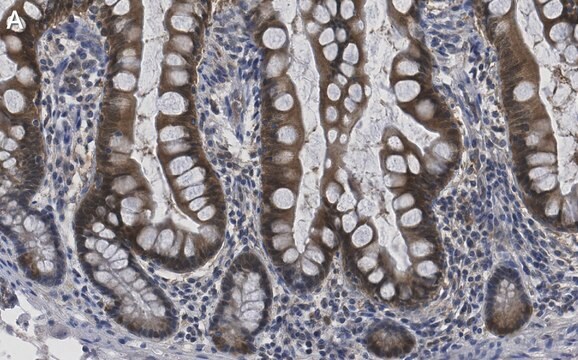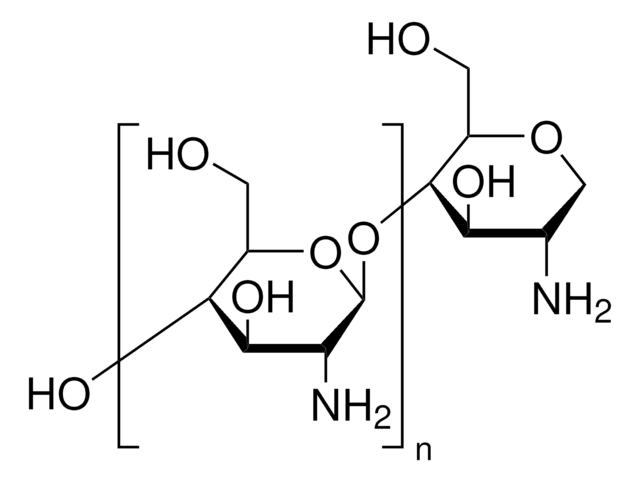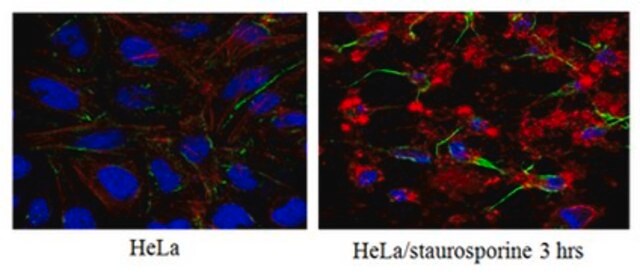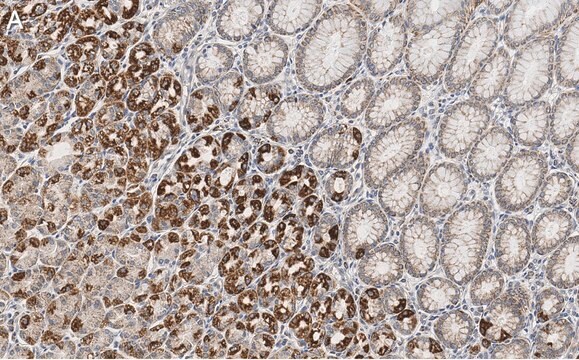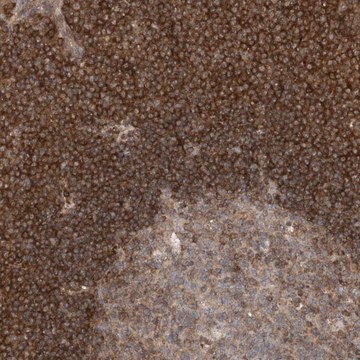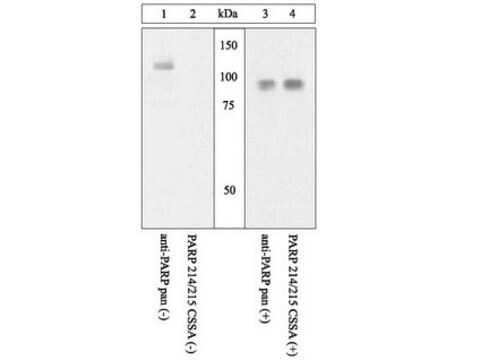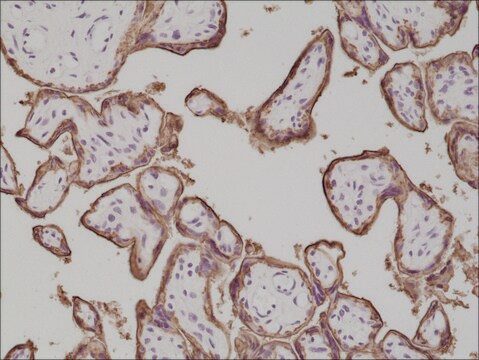C1104
Monoclonal Anti-Caspase 7 antibody produced in rat
clone 11E4, purified immunoglobulin, buffered aqueous solution
About This Item
Polecane produkty
pochodzenie biologiczne
rat
białko sprzężone
unconjugated
forma przeciwciała
purified immunoglobulin
rodzaj przeciwciała
primary antibodies
klon
11E4, monoclonal
Formularz
buffered aqueous solution
masa cząsteczkowa
antigen (full length) 35 kDa
antigen (subunit) 20 kDa
reaktywność gatunkowa
human
metody
immunoprecipitation (IP): suitable
microarray: suitable
western blot: 2-4 μg/mL using a whole extract of cultured human acute T cell leukemia Jurkat cells
izotyp
IgG2a
numer dostępu UniProt
Warunki transportu
dry ice
temp. przechowywania
−20°C
docelowa modyfikacja potranslacyjna
unmodified
informacje o genach
human ... CASP7(840)
Opis ogólny
Immunogen
Zastosowanie
- Immunoprecypitacja
- Mikromacierz
- Western blotting w stężeniu 2-4 μg / ml przy użyciu całego ekstraktu z hodowanych ludzkich komórek ostrej białaczki limfocytów T Jurkat.
Działania biochem./fizjol.
Uwaga dotycząca przygotowania
Oświadczenie o zrzeczeniu się odpowiedzialności
Nie możesz znaleźć właściwego produktu?
Wypróbuj nasz Narzędzie selektora produktów.
polecane
Kod klasy składowania
10 - Combustible liquids
Wybierz jedną z najnowszych wersji:
Certyfikaty analizy (CoA)
Nie widzisz odpowiedniej wersji?
Jeśli potrzebujesz konkretnej wersji, możesz wyszukać konkretny certyfikat według numeru partii lub serii.
Masz już ten produkt?
Dokumenty związane z niedawno zakupionymi produktami zostały zamieszczone w Bibliotece dokumentów.
Nasz zespół naukowców ma doświadczenie we wszystkich obszarach badań, w tym w naukach przyrodniczych, materiałoznawstwie, syntezie chemicznej, chromatografii, analityce i wielu innych dziedzinach.
Skontaktuj się z zespołem ds. pomocy technicznej